6 Unusual Festivals That Are Celebrated In India
By: Priyanka Maheshwari Tue, 12 Dec 2023 11:31:07
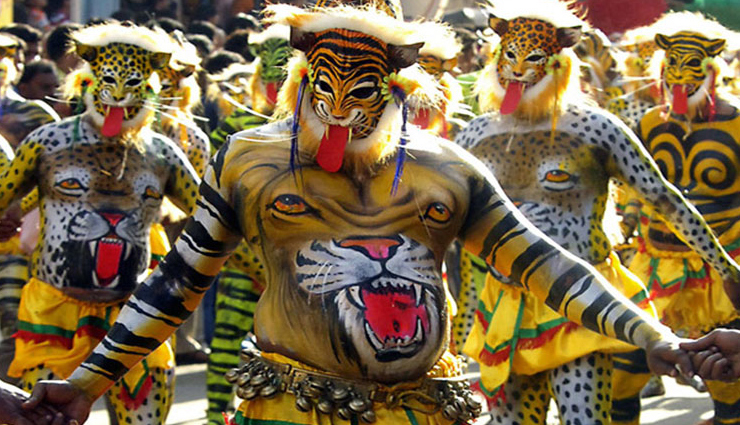
India is a realm where the dominance of religion and its convictions is apparent. Since time immemorial, these beliefs have held sway, leaving an enduring impact on the populace that eludes the influence of contemporary Western ideologies. The profound spiritual ties with the divine have spawned a plethora of distinctive festivals and events, imperative for maintaining equilibrium in religious practices.
While some of these traditions prompt contemplation on their efficacy, raising the query: do these age-old rituals, conducted in the name of religion, truly serve any purpose? This contemplation regarding the essence of our rituals compels us to ponder upon a catalog of exceptionally peculiar festivals in India and some incredibly unconventional events, urging us to delve into their significance.
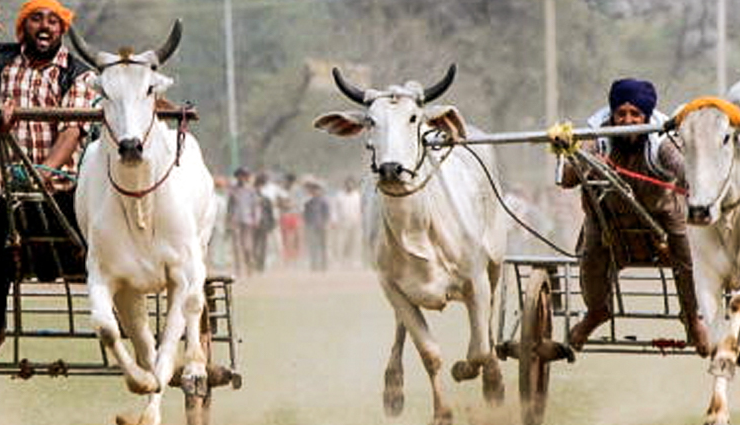
# Rural Olympic (Kila Raipur Punjab)
What term should I use to describe it? A sports extravaganza, a competition, or simply a festive rural gathering? Regardless of the label, it undeniably draws domestic and international tourists from across the globe. In this context, "it" refers to the Kila Raipur Sports Festival, among the most distinctive festivals in India, now a well-known name echoing through the streets of Punjab.
Despite its name linking it to Raipur, the festival unfolds annually in Ludhiana, typically in February. Following the standard Olympic template, Kila Raipur features competitions in Athletics, Hockey, Kabaddi, and Weightlifting.
Adding an intriguing touch to the festivities are events such as the Bullock Cart Race, Mule Cart Race, Dog Race, and Tractor Race, evoking spirited cheers from the spectators. While one might assume these events cater solely to rural audiences, contrary to expectations, the Kila Raipur festival secures sponsorships from multinational corporations.
In the realm of rural festivals celebrated in India, Kila Raipur in Punjab remains unparalleled.
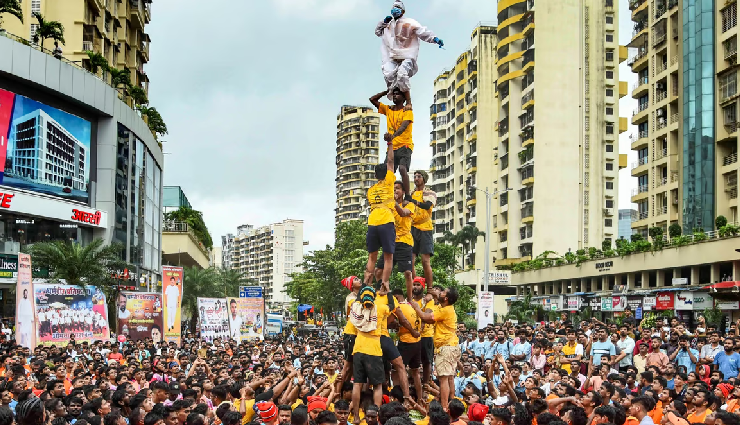
# Dahi Handi (Mumbai, Maharashtra)
Dahi Handi stands out as one of the most beloved festivals among Mumbaikers, and its resonance extends to Bollywood, featuring prominently in many films. Commencing on the auspicious occasion of Janmashtami, the Dahi Handi festival revolves around recreating the scene of Lord Krishna, during his childhood, pilfering butter from an elevated earthen pot. Various groups participate in constructing a stable human pyramid to reach and break the pot filled with curd, mirroring the playful acts of Lord Krishna and his friends.
The exclamation of 'Govinda Ala Re' used to enchant the air during the lively processions of the Dahi Handi festival in Mumbai. Widely celebrated throughout Maharashtra, and particularly in Mumbai, the festival is an integral part of Gokulashtami (Krishna Janmashtami), observed with fervor and enthusiasm. So, if you find yourself in Mumbai in August, be sure not to miss the opportunity to witness the vibrant spectacle of the Dahi Handi festival.
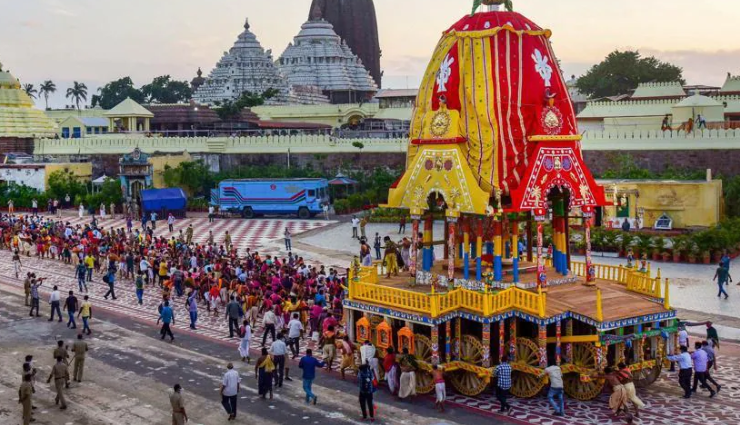
# Rath Yatra (Puri, Orrisa)
Puri in Odisha is renowned as the sacred abode of Lord Jagannath, an incarnation of Lord Vishnu. Each year, the city hosts the globally acclaimed Rath Yatra festival, aimed at fostering equality and unity, drawing over a million pilgrims from various corners of the country.
This distinctive and widely celebrated festival in Puri typically takes place in June or July. The focal point of the event is the grand procession of chariots carrying the three deities of the Hindu pantheon—Lord Jagannath, Lord Balabhadra, and Subhadra—on their journey to the Gundicha Temple. Interestingly, this deity is believed to be the aunt of the trio.
Each of the three deities is placed on distinct chariots, known as 'Rathas,' providing pilgrims with a rare opportunity to behold them. Catching even a glimpse of these deities is considered highly auspicious, and Rath Yatra is the occasion when the idols are publicly displayed, visible to the general populace. While the sacred idols are renewed every twelve years, the chariots are meticulously constructed anew each year.
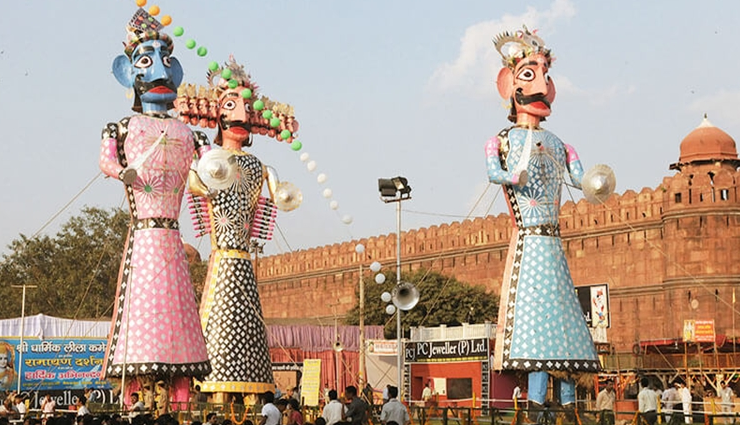
# Dusshera (Delhi)
Dussehra, a festival predominantly observed by Hindus in India, is commemorated throughout the nation under various regional names. However, in Delhi, the celebration takes on a distinct significance, largely centered around the Ramlila event. This event involves a dramatic retelling of the revered epic, Ramayana, at various locations across the city.
The Ramlila unfolds over several days, typically spanning a week, narrating episodes from the epic, including the abduction of Goddess Sita by the demon king Ravana, culminating in his ultimate demise at the hands of Lord Rama. Thus, the festival primarily symbolizes the triumph of good over evil. The culmination of Ramlila involves the ceremonial burning of massive effigies representing Ravana and his brothers.
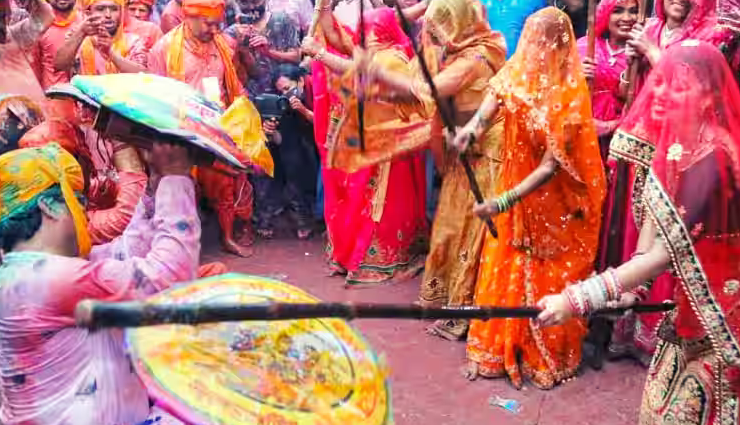
# Lath Mar Holi (Barsana, Vrindavan)
As you're aware, Holi is widely celebrated as the festival of colors, with people from diverse backgrounds joyously smearing each other's faces with vibrant hues. It's a lively and delightful affair. However, imagine a scenario where women approach you wielding sticks, ready to playfully strike you. Sounds intimidating, doesn't it? Well, the men of Barsana in Mathura embrace this unique and local festival known as Lath Mar Holi, where they fearlessly celebrate amidst such stick-wielding encounters.
Lath Mar Holi unfolds just before the official Holi day, presenting a distinctive way to revel in the colorful festivities. The tradition of men carrying sticks in Barsana is rooted in Hindu mythology, where Lord Krishna playfully visited the village of his beloved Radha on this day and teased her and her friends. In response, the irate women of Barsana chased Lord Krishna away. This historical event is commemorated annually through the highly anticipated Lath Mar Holi celebration in the region.
As part of the ritual, men sing provocative songs to attract the women, leading to a playful exchange that involves the wielding of sticks. Notably, the men often partake in 'Bhang'-infused Thandai during this time, which provides some relief from the impact of the playful beatings with the Lathis.
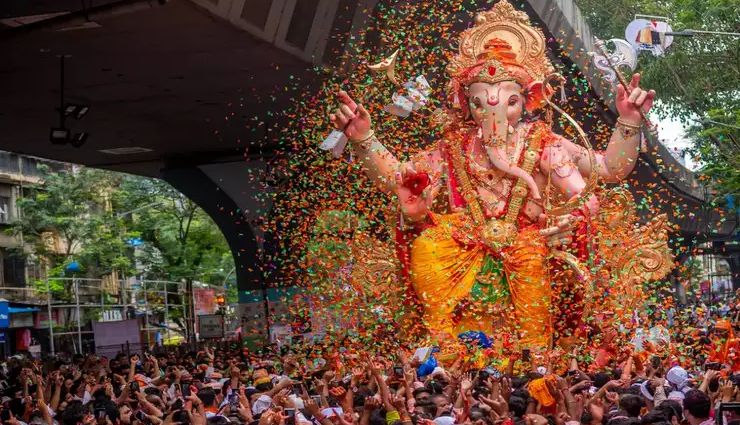
# Ganesh Chaturthi (Mumbai, Maharashtra)
Ganesh Chaturthi in Mumbai stands out as a globally renowned Hindu festival dedicated to honoring Lord Ganesha. Beyond being a mere ritualistic worship, the celebrations of Ganesh Chaturthi evoke the atmosphere of a sacred carnival. The festivities span ten days, culminating in the symbolic immersion of Lord Ganesha's idol in the sea.
The belief underlying this ritual is that by immersing the idol, Lord Ganesha absolves his followers of negativity and problems. The inception of this remarkable festival in Mumbai traces back to the era of the great Shivaji. With the aim of fostering cultural harmony and a sense of nationalism among his subjects, the Maratha ruler initiated the tradition of celebrating Ganesh Chaturthi in the state of Maharashtra.
Initially conceived as an event primarily for the Maratha community, the efforts of the revolutionary Bal Gangadhar Tilak transformed it into a social celebration transcending religious boundaries. Consequently, people from diverse communities enthusiastically participate in this grand celebration, displaying the same fervor as a Marathi participant. This universal appeal renders Ganesh Chaturthi one of the most eagerly anticipated festivals in Mumbai.





